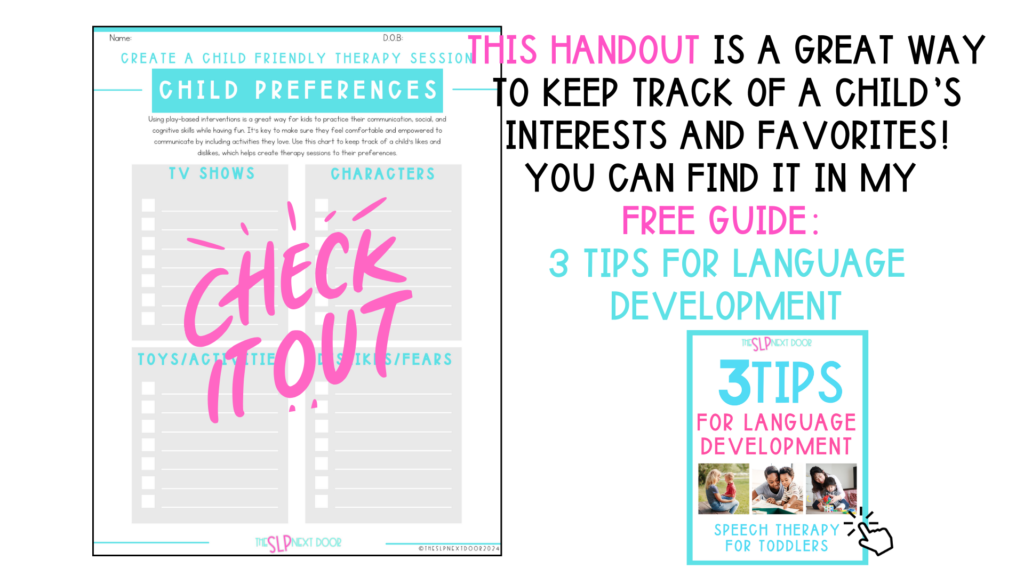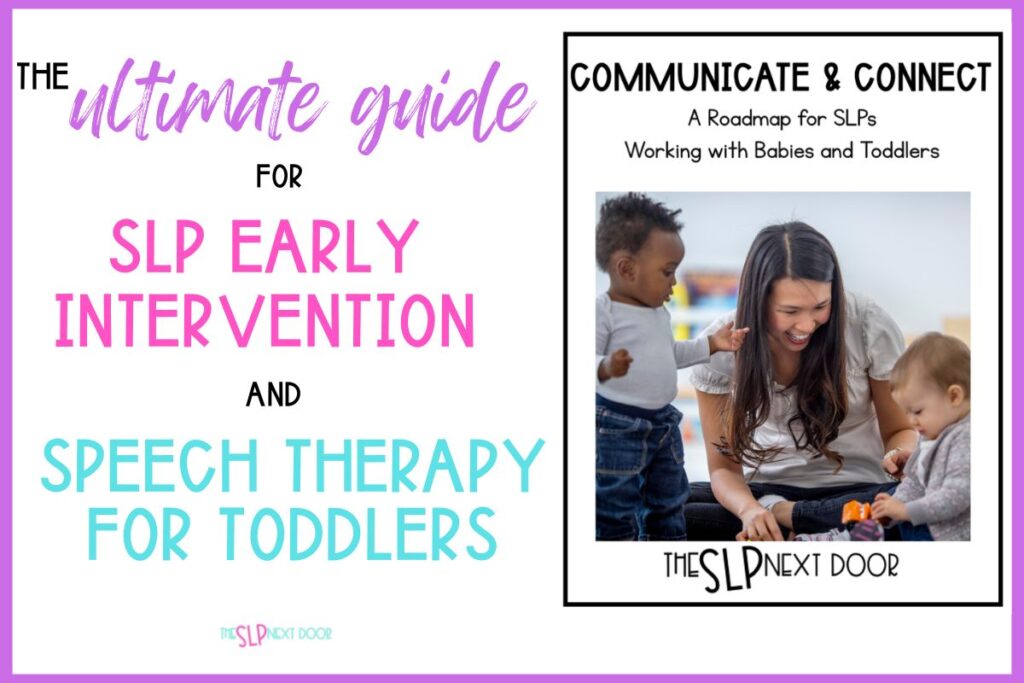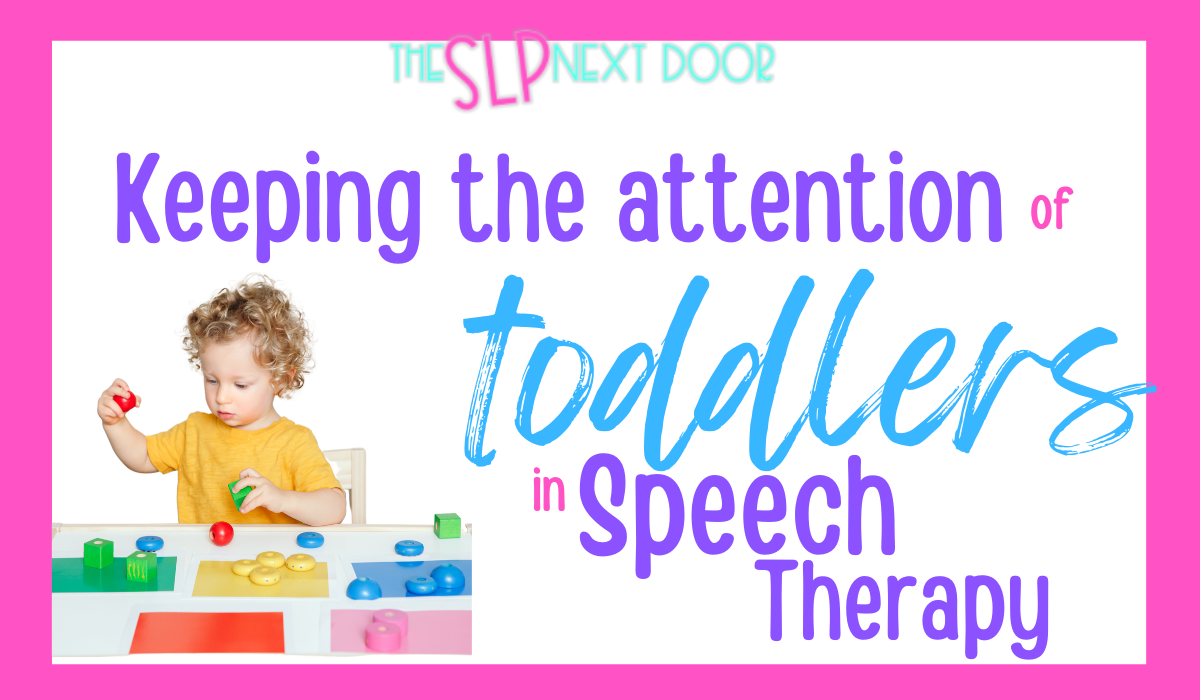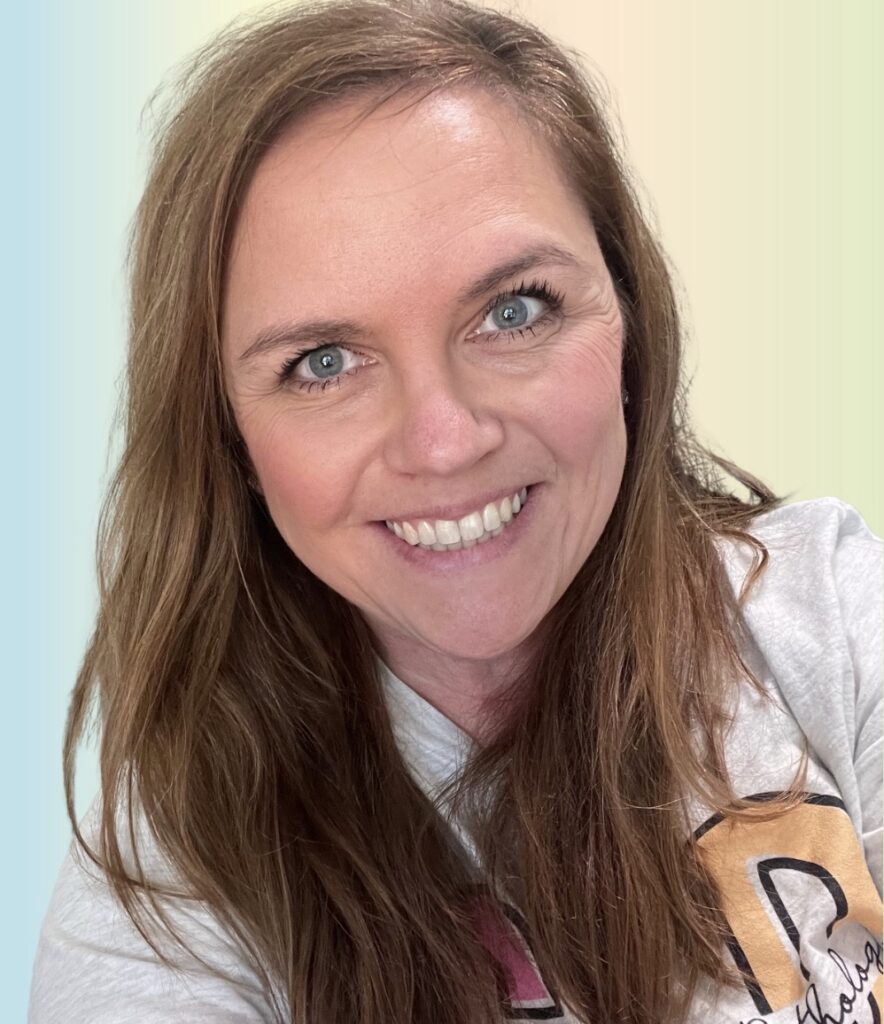One of the biggest questions I’m asked when it comes to speech therapy for toddlers
“How can I get and keep their attention?” The short answer: you can’t.
I used to get frustrated, thinking I had to hold toddlers’ attention to make progress. But here’s the thing: toddlers aren’t made to sit still. Their attention spans develop gradually, and knowing what to expect can make a world of difference in how we approach (and plan) our therapy sessions.
Toddler Favorites
Let’s face it. You are not going to be able to keep the attention of babies and toddlers for very long—it’s not developmentally appropriate. (Feel the relief? It means you’re not doing this wrong!) Because their attention span varies based on their age, child-led therapy and play-based therapy are very important.
Here’s what you want to find out: what are the toddler’s favorite songs, favorite t.v. shows, toddler books, toddler toys… what do they enjoy? If you can learn this information from the get-go, you’ll save yourself a lot of time and frustration.
In my FREE guide, 3 Tips for Language Development, I have a handout that is perfect for keeping track of a child’s favorite activities!

Meet them Where They are
What exactly does it mean to meet a toddler “where they are”? Exactly as it sounds. You’re going to start encouraging their current communication and developmental skills and build those current skills. If a toddler’s attention span isn’t quite up to their age level, we aren’t going to fault them for it. Instead, we will work toward increasing it! Understanding a toddler’s developmental level makes managing expectations less stressful.
Another thing to remember is that a toddler’s attention to task will depend on a few things: developmental level, age, and current skills and abilities. As with everything else in the toddler world, attention requires time for development and may need extra support.
Play Development & Attention Span
Play is a great way to help increase a toddler’s attention. Understanding how play develops also provides some insight into other areas, including attention!
Initially, babies make a lot of movements with their arms, legs, hands, and feet. They are discovering how their bodies move. As they develop into toddlers, they will begin to play alone and aren’t necessarily interested in playing with others.
By two years old, toddlers watch others playing but may not play with them. They are aware of others in the room but aren’t necessarily looking to engage with them (unless they have a toy the other one wants). Another example is if you give a group a set of blocks, the toddlers will play with the same set of blocks, but they make individual towers instead of working together to create one tall tower.
What does this have to do with attention span? As children develop and improve their skills, their attention to tasks should also increase.
Preschool Play and Attention
Children between 3 and 4 years old start developing interacting skills with others during play. They might be engaging in an activity related to the one around them, but they aren’t actually interacting with the children. The typical engagements and interactions we think of when hearing the term ‘play’ don’t occur until a child is at least 4 years old.
Understanding that toddlers will progress developmentally through these stages is another way to help you manage expectations and encourage communication based on a toddler’s developmental skills.
Toddler Communication
Another important factor to consider when it comes to attention development? A child’s current methods for communication. Vocalizations, verbalizations, gestures, behaviors, sign language, picture communication… a variety? Entering their world on their terms builds trust and begins the foundation for their development.
Toddler’s Attention Development
Keeping your expectations within reason, understanding that attention and play will develop as the toddler grows, and meeting them where they are in terms of their current communication skills will help you begin to see more success in your toddler speech therapy sessions!
Catch the videos about this series on my instagram and Tiktok!
If you’re looking for more information about increasing communication in toddlers, be sure to grab my SLP Early Intervention handbook, Communicate & Connect! This resource is the perfect guide to speech therapy for toddlers!



